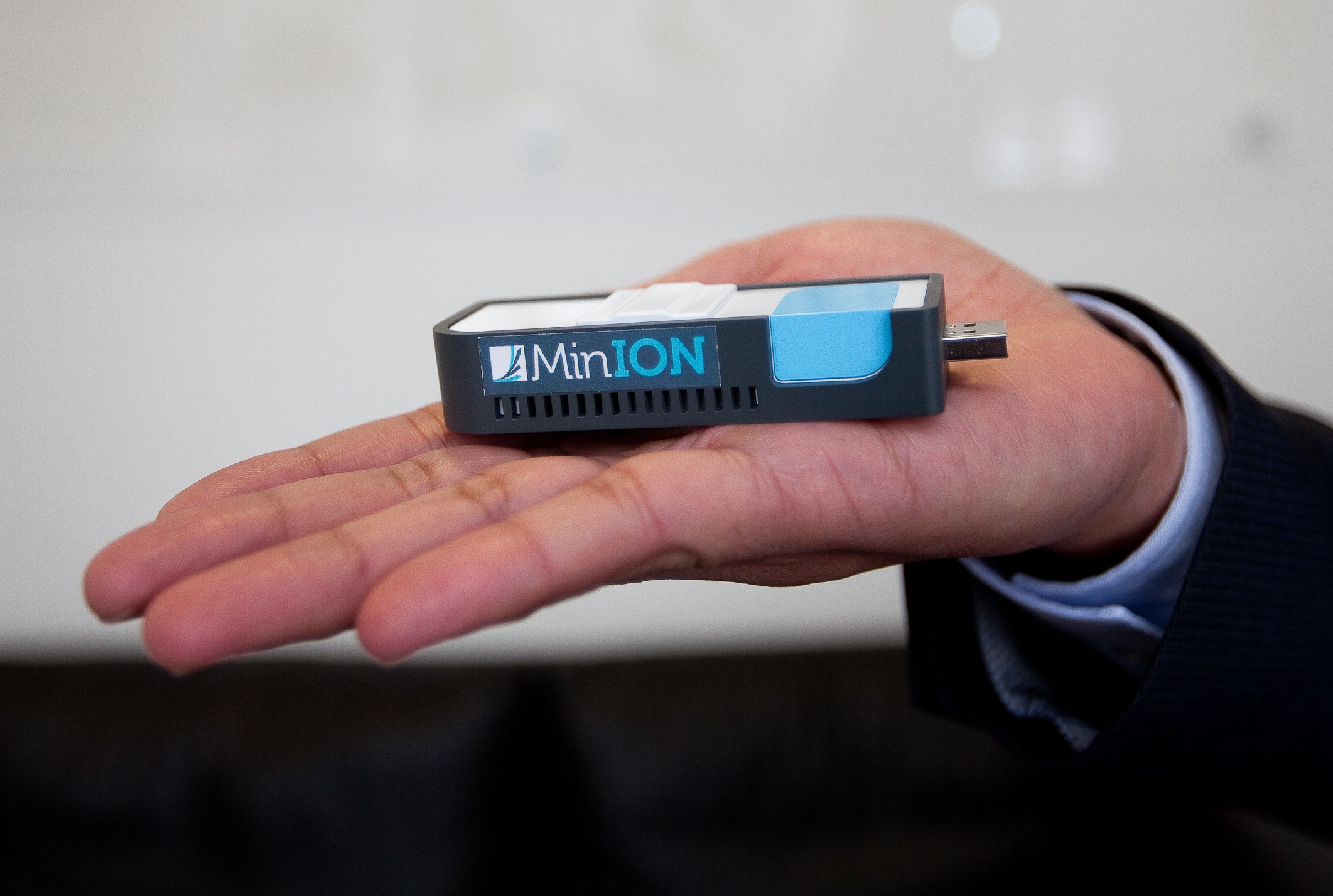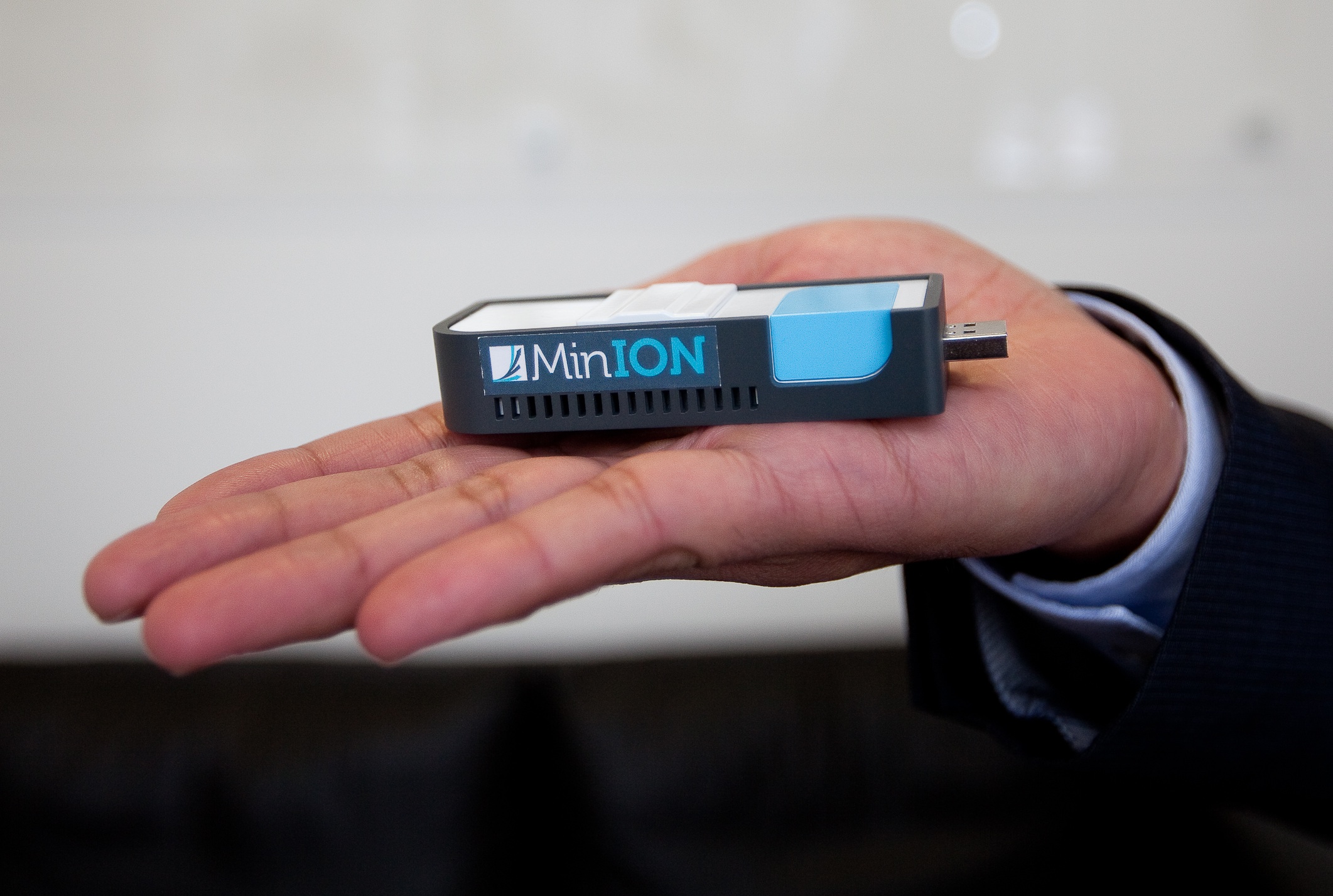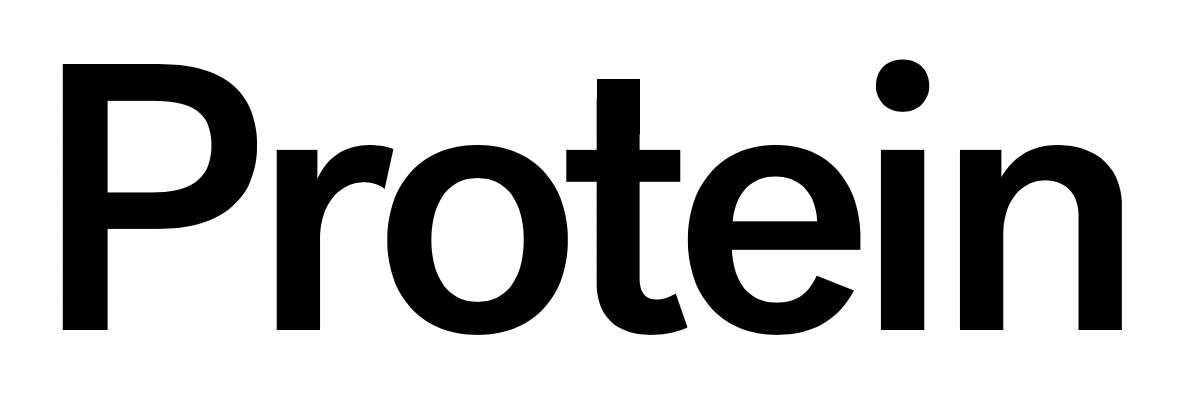Mini-ION
Two decades ago it would take about ten years and around $2.7 billion to sequence the entire human genome. But today it could be done in as little as one week for just $3000.


Two decades ago it would take about ten years and around $2.7 billion to sequence the entire human genome. But today it could be done in as little as one week for just $3000. This significant evolution in the industry has happened thanks to the release of two new devices by biotech firm, Oxford Nanopore. Both are potential game changers thanks to their portability, affordability and the depth of DNA data they analyse.
The most eye catching is the Oxford MINI-Ion, a USB-sized tool that can sequence about a billion base pairs of DNA from a single drop of blood. Its portability allows DNA sequencing in the field at a cost between just $500 and $900. The company also unveiled the GRID-Ion, which can sequence the entire human genome of 3 billion base pairs of DNA for the price of $3000.
To date only two humans have their entire genome sequenced: James Watson, who discovered DNA's double helix, and his student Craig Venter, a leading researcher in genome sequencing. This dearth of data is a result of the previously high cost of sequencing technologies. But Oxford Nanopore's inventions move human genome sequencing within the price range of other medicinal procedures. As a result, uncovering the secrets of our genes may become easier. And with this, the promise of groundbreaking research and highly-personalised medicine grows even greater.
To learn more about how genetics is becoming accessible to consumers, have a read and watch of our profile on science writer Lone Frank.



Discussion